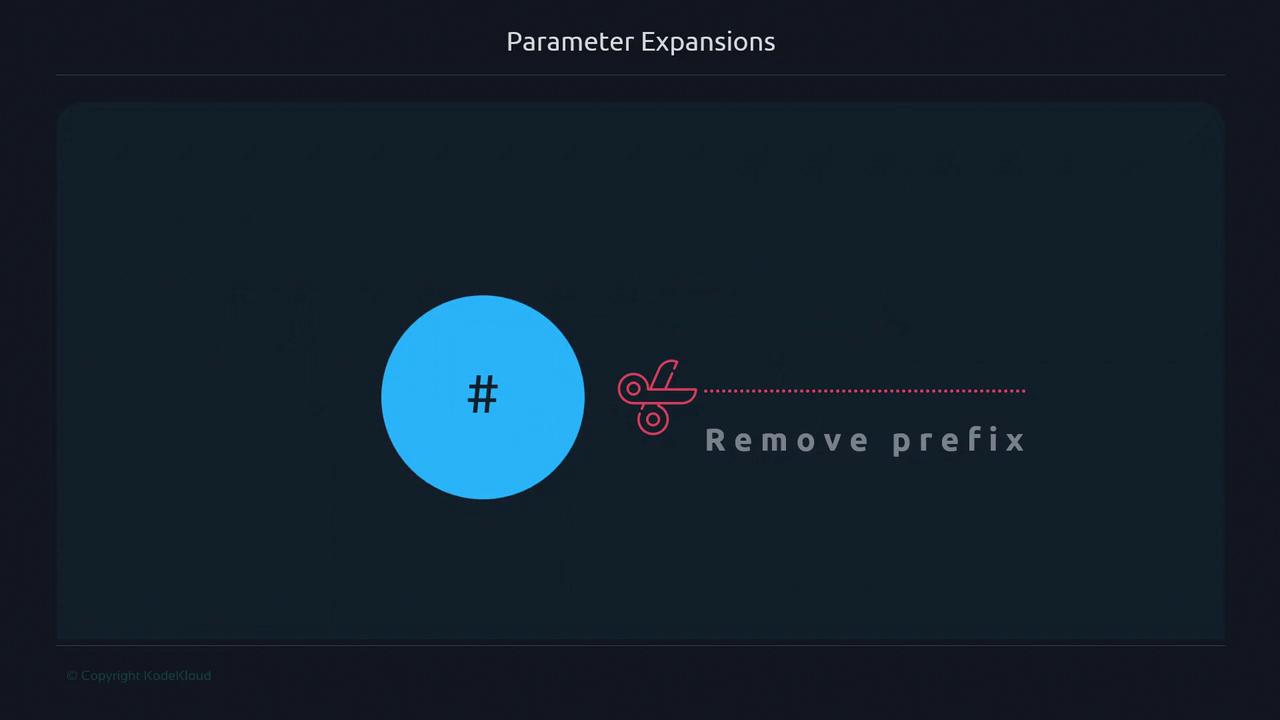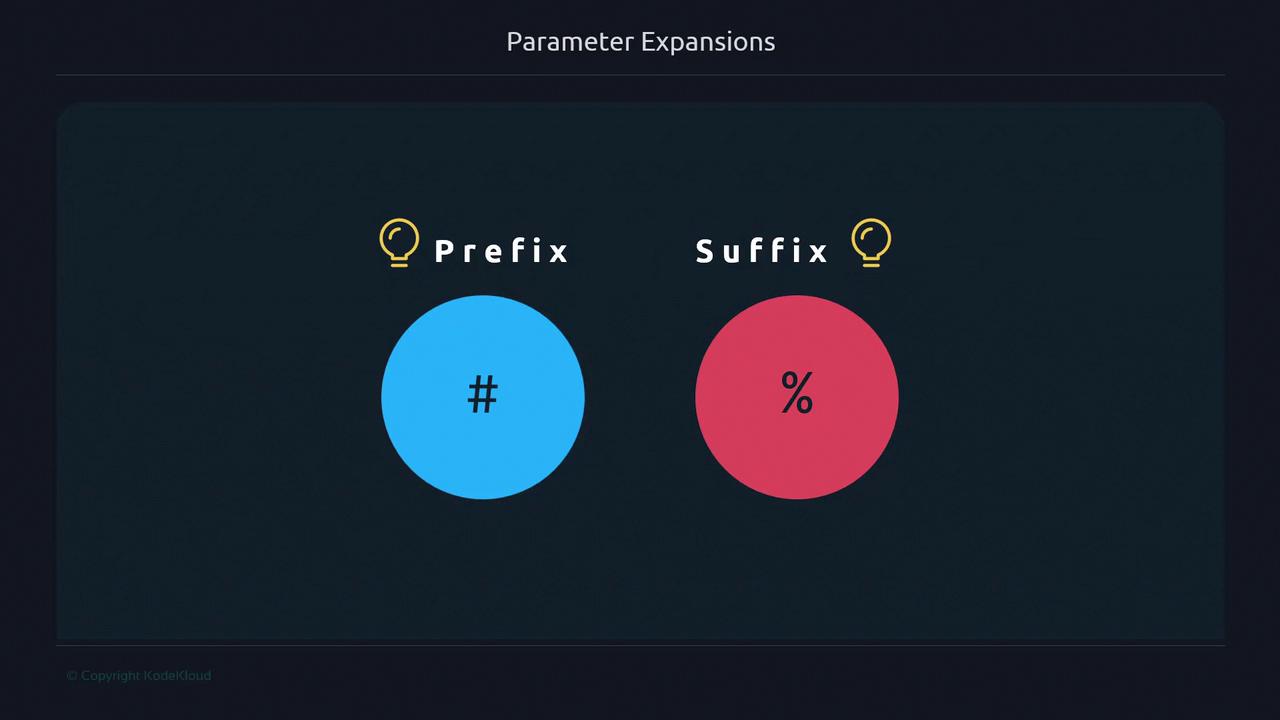Advanced Bash Scripting
Expansions Part One
Parameter Part One
In Bash scripting, parameter expansion lets you transform variable values using patterns inside ${}. Previously, we replaced “file.txt” with “data” in a path:
#!/usr/bin/env bash
path="/home/user/file.txt"
echo "${path/file.txt/data}"
# Output: /home/user/data
In this lesson, we’ll focus on pattern matching and how to remove prefixes and suffixes from strings using Bash parameter expansion.
Patterns in Bash
A pattern is a sequence of characters recognized by the shell for matching or substitution. You’ll find patterns in file globbing (e.g., *.txt), text processing, and data validation. In Bash, patterns power parameter expansion, letting you transform variable content without external tools.
Variable Expansion vs. Parameter Expansion
By default, ${var} simply expands to its value:
name="John Doe"
echo "Hello, ${name}"
# Hello, John Doe
When you include operators like # or % inside the braces, Bash invokes parameter expansion, applying pattern-based modifications to the variable’s value.
Note
Always enclose the expression in double quotes ("${...}") to preserve spaces and prevent word splitting.
Removing Prefixes and Suffixes
Bash supports removing the shortest matching prefix or suffix from a string with ${var#pattern} and ${var%pattern}.
Understanding Prefix and Suffix
Consider these job titles in an IT company:
![]()
- Prefixes (associate, senior, junior, mid) indicate tenure or level.
- The suffix (
Engineer) indicates the job field.
Prefix Removal with
The # operator deletes the shortest matching pattern from the start of the string:

Example 1: Remove the leading H:
greetings="Hello World"
echo "${greetings#H}"
# Output: ello World
If the pattern isn't found at the beginning, the value remains unchanged:
echo "${greetings#e}"
# Output: Hello World
Example 2: Remove the word “Hello ” (including the space):
echo "${greetings#Hello }"
# Output: World
Patterns are case-sensitive: "h" won’t match "H".
echo "${greetings#h}"
# Output: Hello World
Suffix Removal with %
The % operator removes the shortest matching pattern from the end of the string:
Example 1: Drop the trailing d:
echo "${greetings%d}"
# Output: Hello Worl
Example 2: Remove “rld” at the end:
echo "${greetings%rld}"
# Output: Hello Wo
If the suffix doesn't match exactly, the string stays the same:
echo "${greetings%world}"
# Output: Hello World
Warning
Pattern matching in Bash is case-sensitive. Ensure your pattern matches the exact case of the prefix or suffix.
Quick Reference Table
| Operator | Action | Example |
|---|---|---|
${var#pattern} | Remove shortest prefix match | ${greetings#Hello } → World |
${var%pattern} | Remove shortest suffix match | ${greetings%rld} → Hello Wo |

Next Steps
In the next lesson, we'll explore longest-match removals using ## and %% to strip more complex patterns.
References
Watch Video
Watch video content